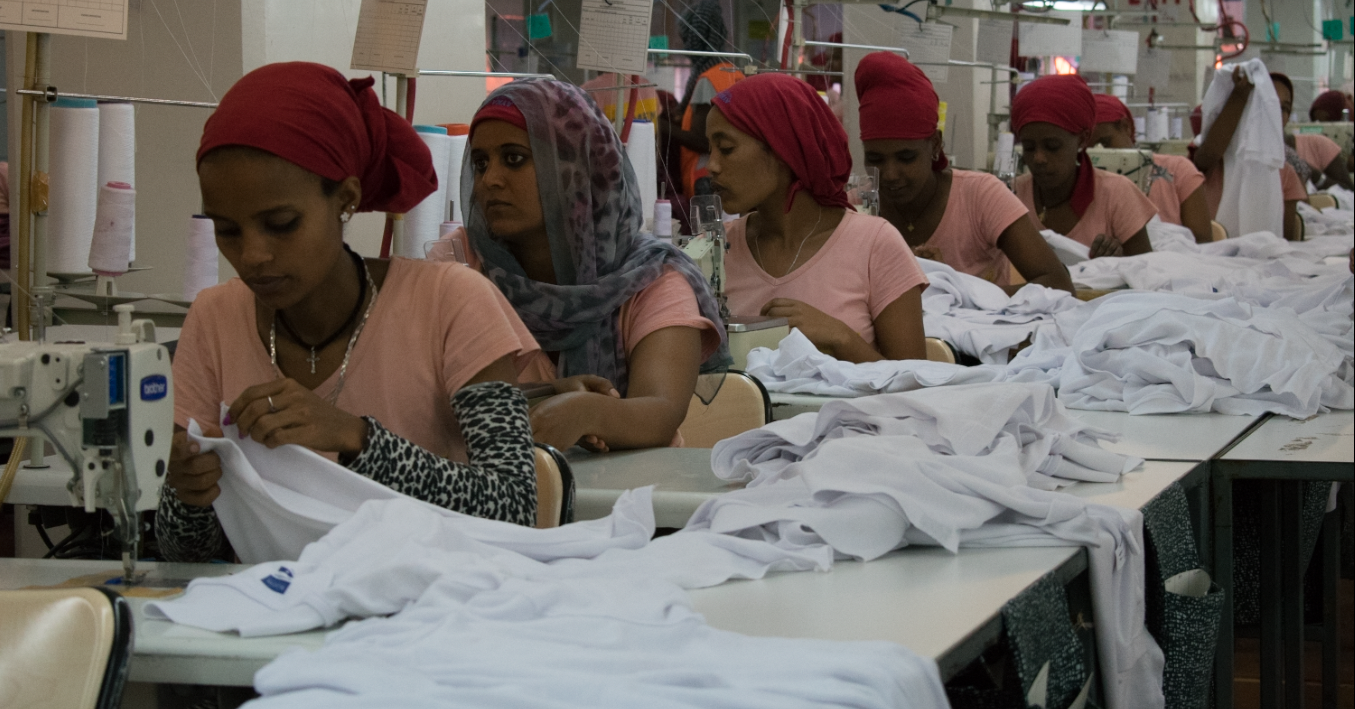27 February, 2020The campaign for living wages in Ethiopia is at the point where the question is not when the low wages will be increased but how soon this can be done.
IndustriALL Global Union’s ACT (Action, Collaboration, Transformation) initiative provides a possible strategy as it finds solutions to systemic problems in the garment industry’s global supply chain.
The laws are in place and the Constitution affirms workers’ rights. Additionally, the new labour Proclamation (2019) recognizes that
“worker-employer relations are governed by basic principles of rights and obligations with a view to enabling workers and employers to secure durable industrial peace.”
The country is also a signatory to the International Labour Organization (ILO) Conventions 87 (freedom of association and the protection of the right to organize) and 98 (right to organize and collective bargaining).
How then can unions seize this moment?
These and other issues including unrestricted recruitment, and organizing by unions in the industrial parks, collective bargaining, and social dialogue, were the main issues discussed at the ILO roundtable meeting on Advancing decent work and inclusive industrialization in Ethiopia, 26-27 February, Addis Ababa.
The government of Ethiopia was represented by the state minister for labour and social affairs, Ayelech Eshete, who said to promote decent work labour stakeholders should build trust. Those who participated included employers, global brands, and trade unions including the Confederation of Ethiopian Trade Unions.
The ACT initiative was represented by IndustriALL, H&M, and PVH. ACT supports living wages, better working conditions and genuine representation of workers, national collective bargaining agreements and better purchasing practices by global brands.
For instance, through ACT, factory owners benefit through motivated workers, higher productivity and stronger long-term business relationships because of legally binding agreements. Further, brands will have reliable quality suppliers who respect workers and human rights including those of women workers, and respect due diligence to supply chains.
IndustriALL affiliate, the Industrial Federation of Textile Leather & Garment Workers Trade Union (IFTLGWTU) invited H&M, and PVH to discuss with the union ways in which they can work together towards living wages in Ethiopia.
Angesome Yohannes, president of IFTLGWTU said:
“The brands are an important bridge between employers and workers and important to our campaign to organize and recruit in the industrial parks. Currently, unions have no access and thousands of workers are being denied the right to join the union.”
Jenny Holdcroft, IndustriALL assistant general secretary, said:
“Employers must talk to unions and there should be mutual understanding, communication and dialogue at all levels. The engagement should be at the industry level and requires the allaying of fears and mindset changes to build trust. All this can happen through ACT which addresses systemic problems within the garment supply chain which are not unique to Ethiopia.”
According to the ILO, Ethiopia’s garment and textile sector is made up of 200 factories that employ 62,000 workers of whom 95 per cent are women.
